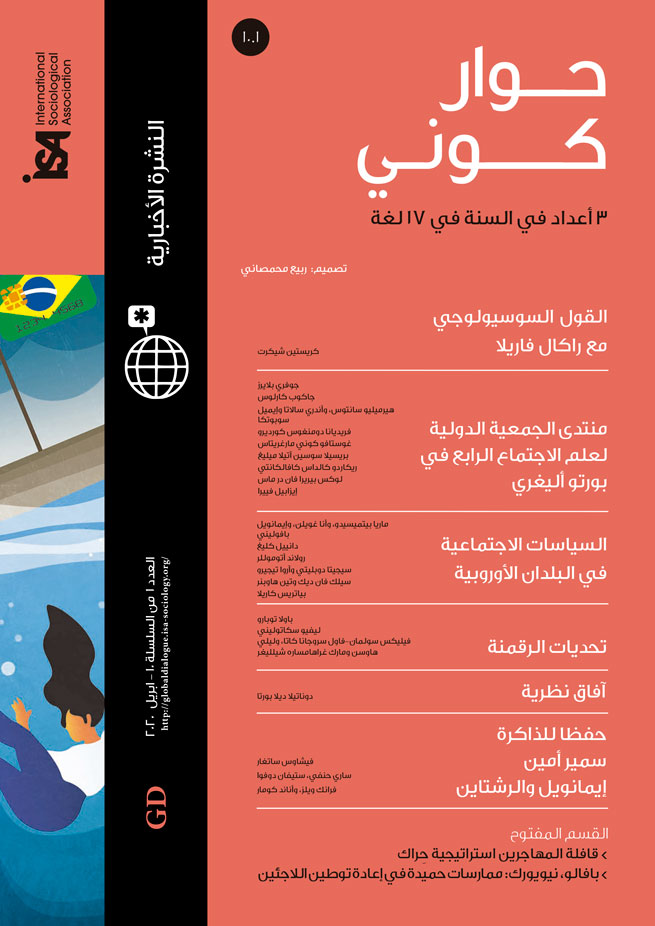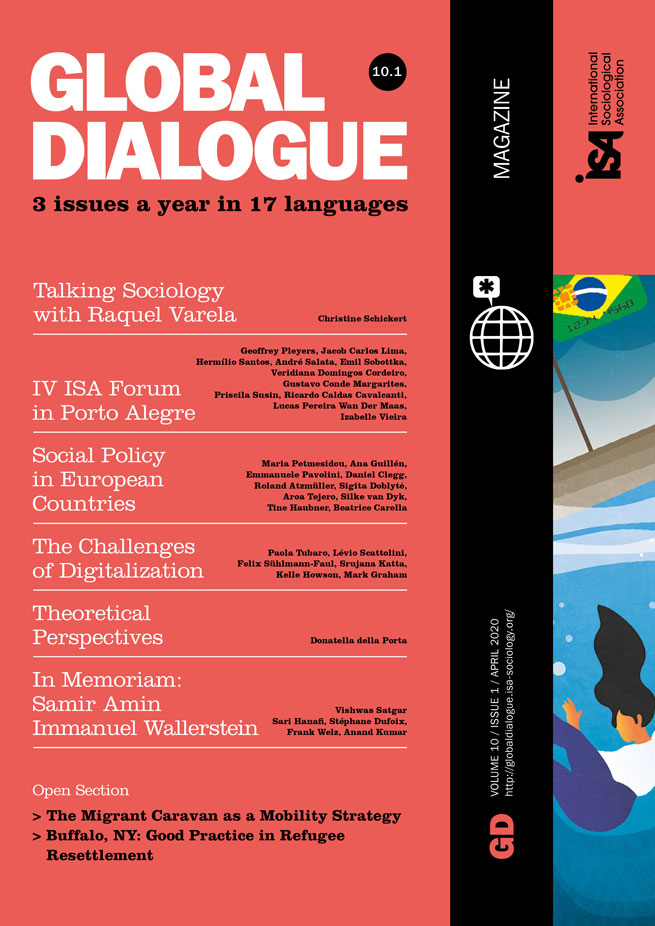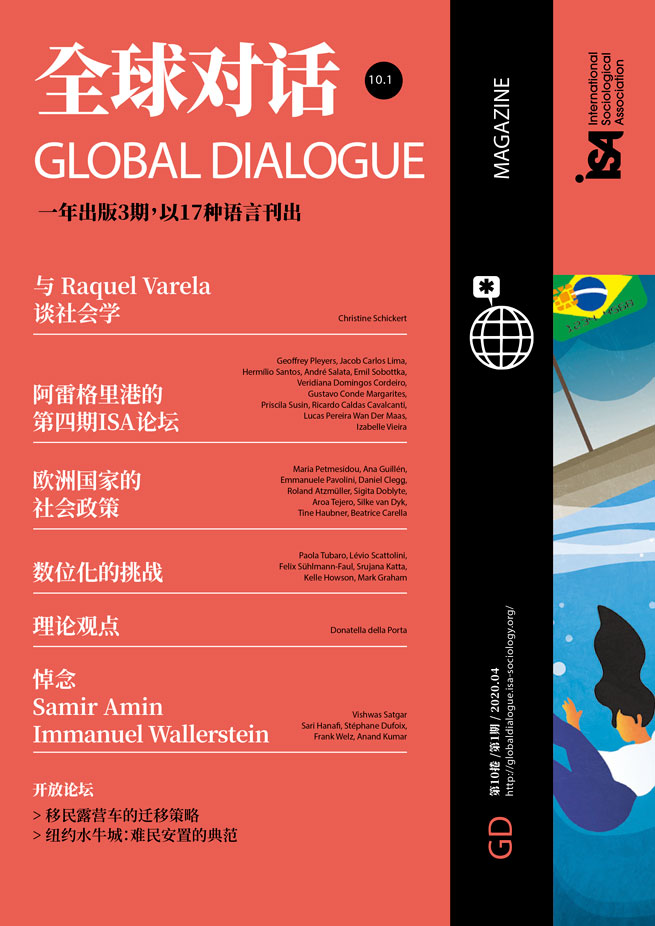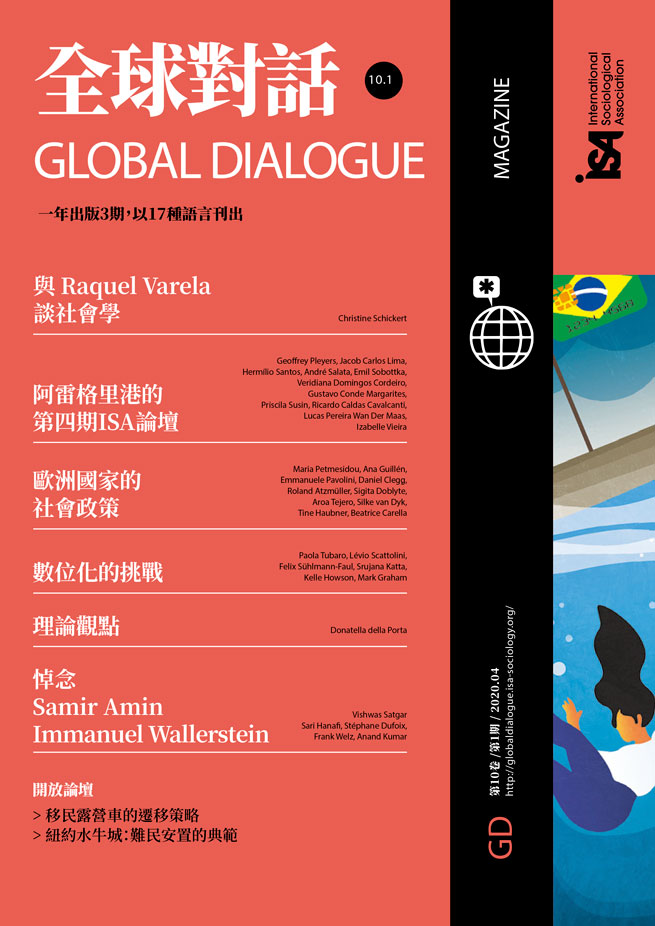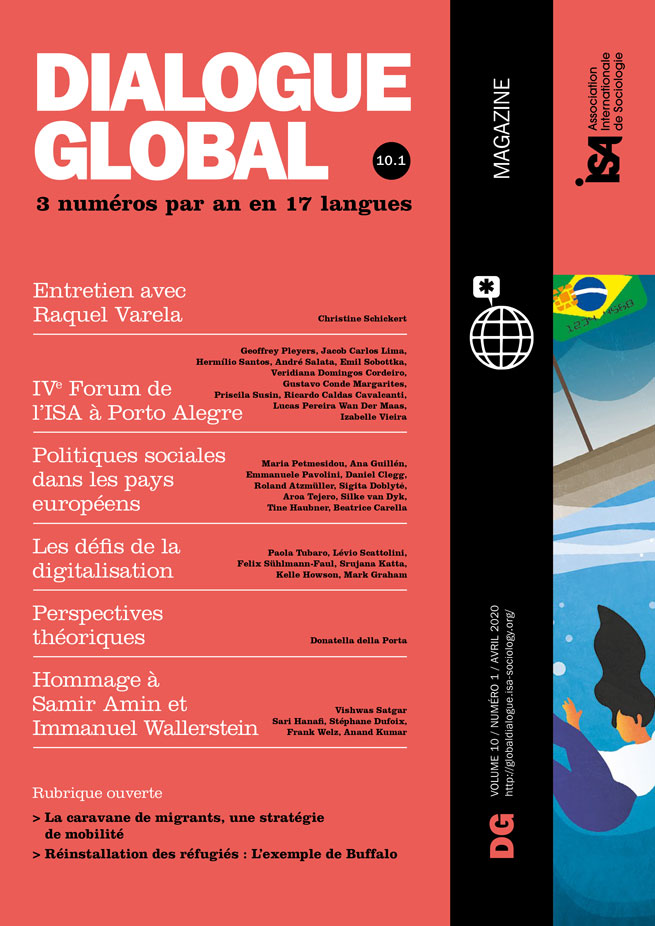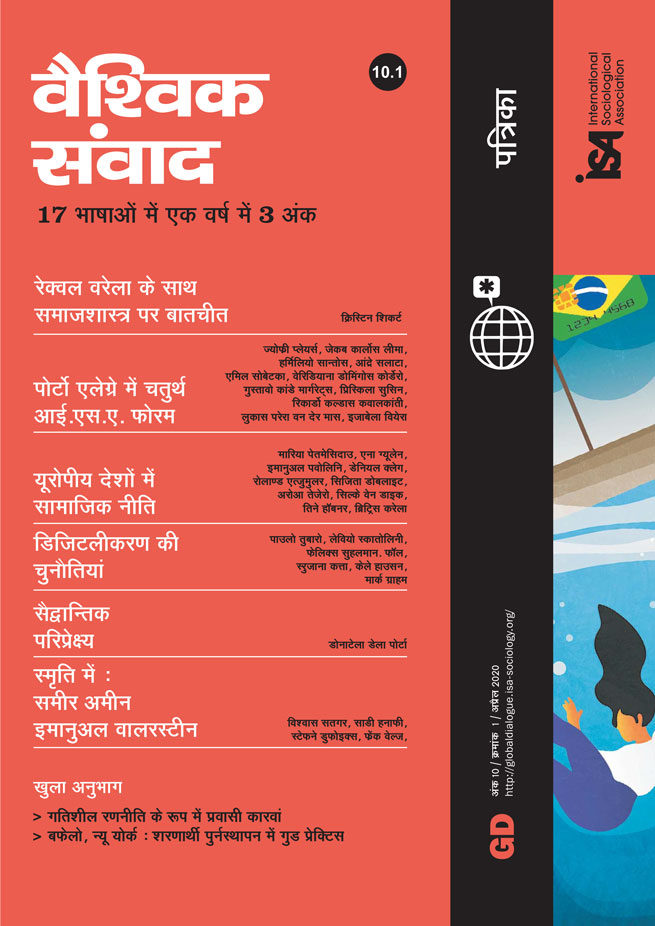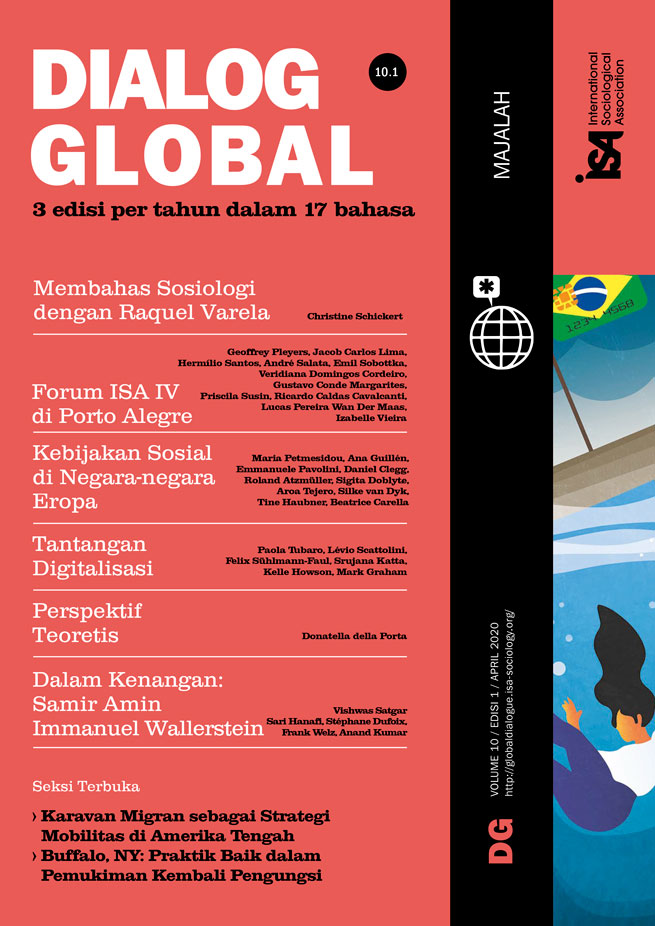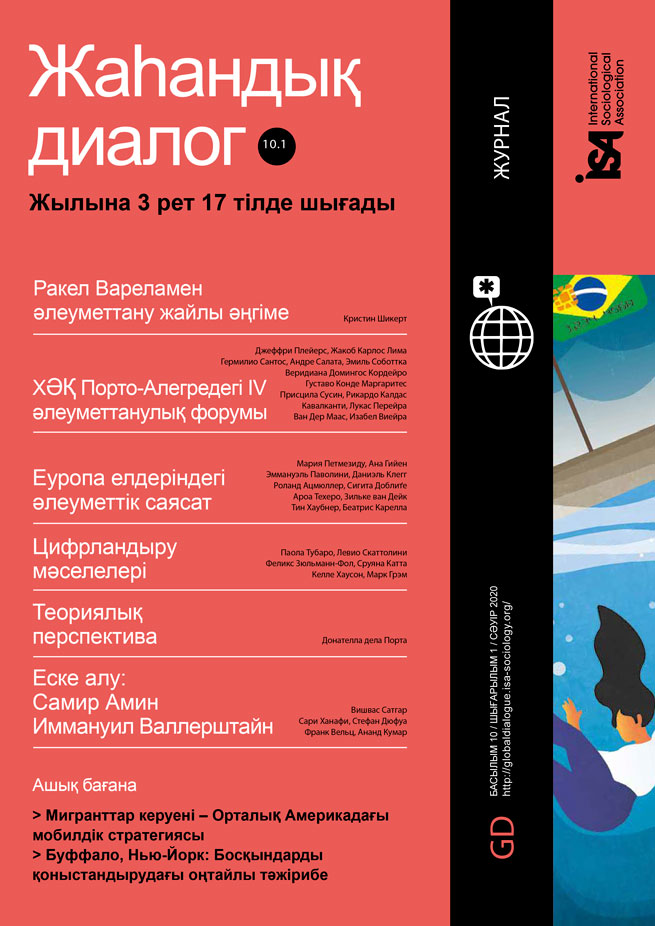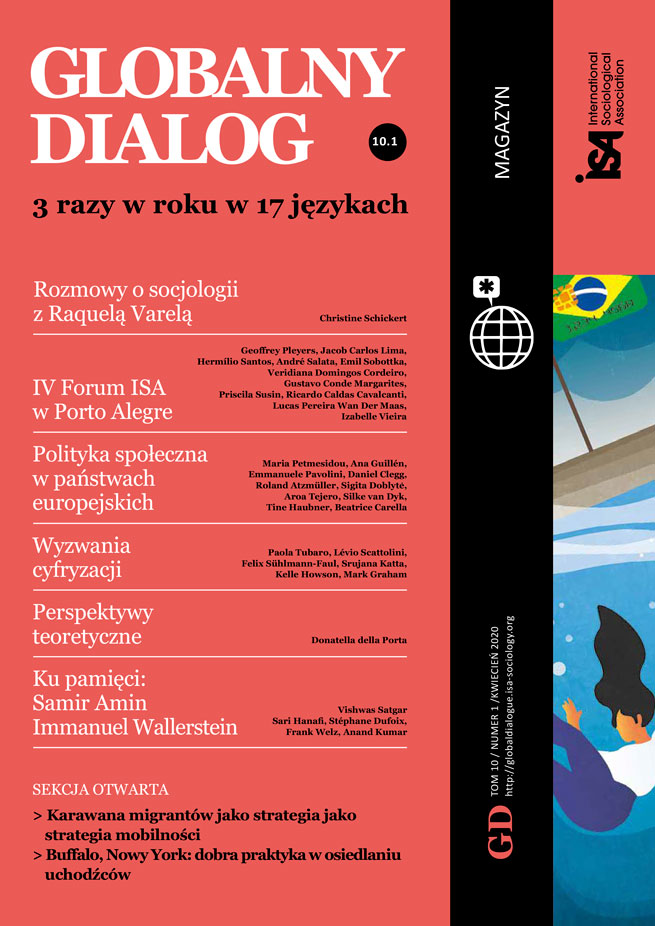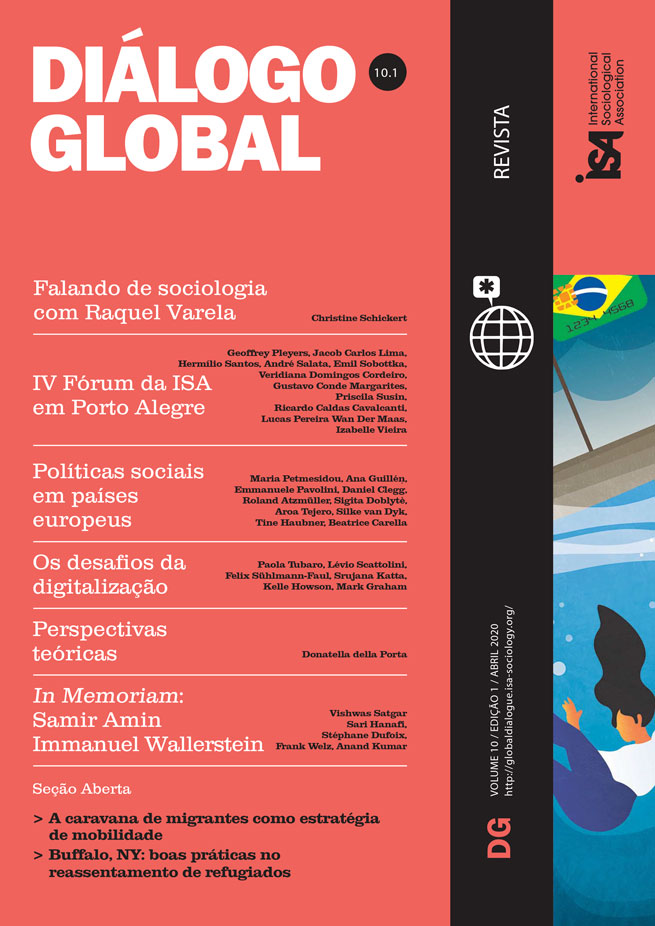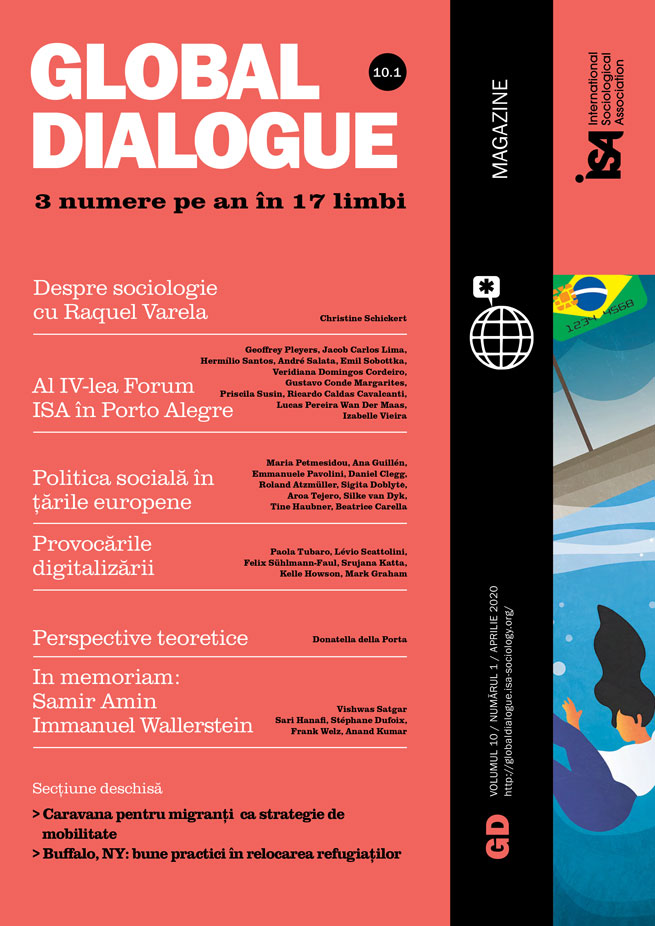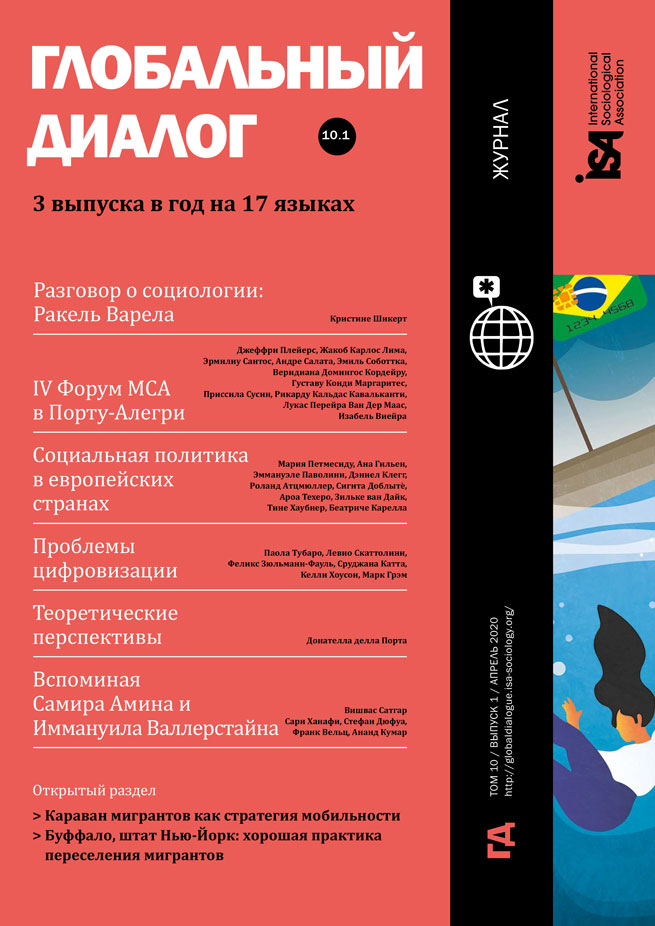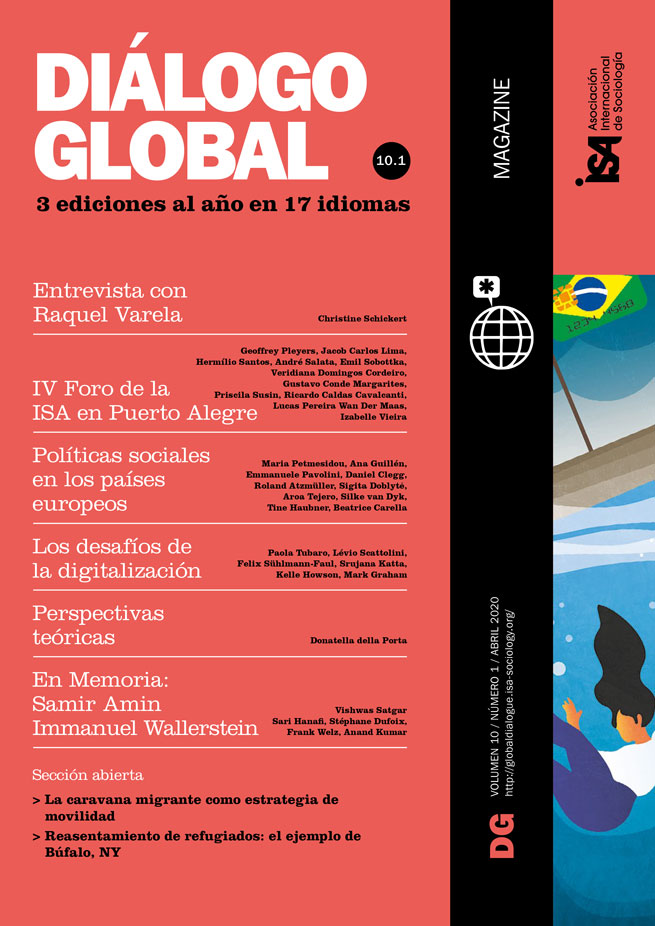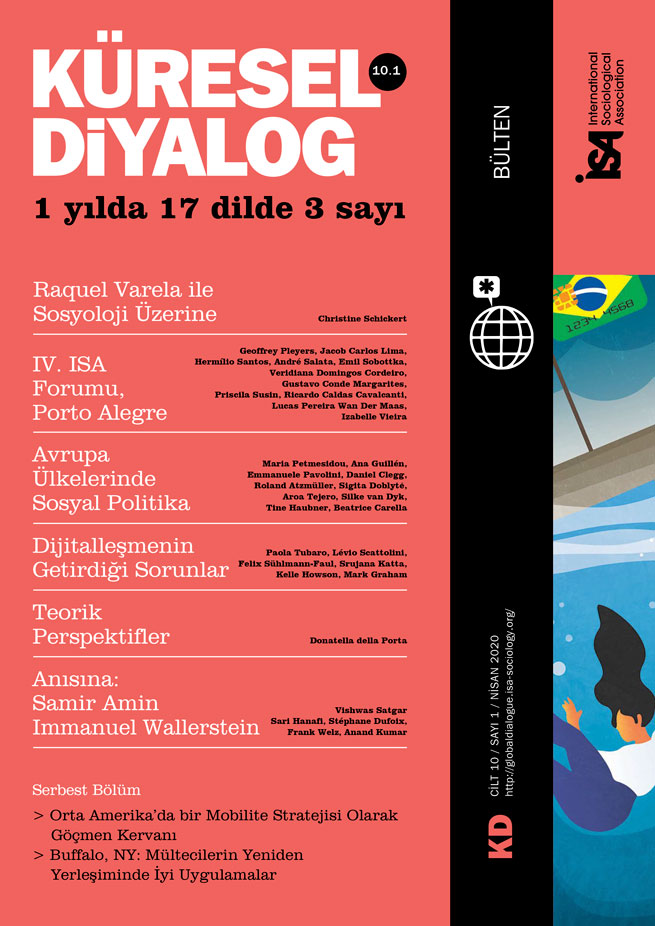Read more about In Memoriam: Immanuel Wallerstein (1930-2019)
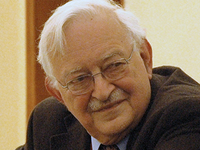
I. Wallerstein: A Towering Sociologist and Intellectual
by Stéphane Dufoix and Sari Hanafi
February 21, 2020
Reflecting on the 2018 ISA World Congress in the Canadian Review of Sociology, Frédéric Vandenberghe and Stephan Fuchs emphasized that “sociology is gone.” For them, a fragmented discipline has lost its core and identity. One of the strongest global voices against the fragmentation and specialization of sociology has been Immanuel Wallerstein. His death on August 31 of 2019, at 88 years old, is a big loss for the social sciences. The burden of responsibility that has now passed to us - the global community of sociologists - but fortunately also the scholarly heritage left by him, are immense. Having become inspired by the core ideas of Immanuel Wallerstein since the late 1970s (when Anand Kumar studied under his guidance in Binghamton) through a long series of meetings (in 1999 we jointly video-interviewed him in Paris[1]), we will try to present a few of his ideas that we think are most relevant for contemporary sociology.
First, regarding the unit of analysis: While international sociology debated sociology’s “methodological nationalism” at the turn of the new century (e.g. U. Beck, D. Chernilo), Wallerstein had already replaced the unit of social scientific analysis in the 1960s when he decided that he could not study postcolonial West Africa as national societies but only as a part of a historical world-system – the starting point from where he developed his four-volume book The Modern World-System. Second, targeting our method (epistemology) of making sense of the social, Wallerstein’s early call for a relational social science has become an important and promising challenge for the social sciences. Drawing on Ilya Prigogine’s science of complexity, in the 1990s Wallerstein began arguing that the natural sciences and the humanities would find a common new terrain in the social sciences (bringing sociology back again to the centre) by replacing the Newtonian world-view of repetition, stability, and equilibrium by the complexity studies’ new view of a historical world of instability, evolution, and fluctuation. Following this view, neoclassical economics’ determination on a general equilibrium is wrong. Also, our traditional practice of separating the economic (for economics), the political (for political science), and the sociocultural (for sociology or the humanities) is wrong. Analyzing one phenomenon must necessarily also take into account its relational making by the others. For example, ethnicity cannot be simply considered as a cultural heritage from the past but at the same time as both a strategic mode imposed from the top within a society for organizing the (economically) lower strata and as a (politically) bottom-up mode of resistance.[2] Third, the hidden agenda behind Immanuel Wallerstein’s emphasis on sociology’s epistemological and ontological presuppositions was his commitment to strengthening the coherence and effectiveness of our discipline. Already in the 1990s, as president of the ISA, he criticized sociology’s continual split into increasingly smaller sections, one that could only be overcome by rethinking sociology’s commonly shared intellectual sources.
Finally, he gave primacy to the need to be an engaged sociologist not only as a researcher but also as a sociology teacher. He did it by being a consistent participant as an “organic intellectual” in the movements for justice and harmony - from the anti-war protests of the 1960s to the anti-apartheid resistance of the 1970s-1980s, and the World Social Forum assemblies from Africa to Latin America. In short, Immanuel Wallerstein will be remembered as a great master who not only confronted the limits of “western sociology” in the 1960s but also revitalized sociology in the next half-century by establishing a set of new concepts, theories and methods (the World System approach) to make better sense of the dynamics of human society – particularly between “the long sixteenth century” and the turbulent twentieth century.
[1] Video interview with Immanuel Wallerstein by Anand Kumar and Frank Welz, 1999, https://www.youtube.com/playlist?list=PL49D592A64200367F.
[2] Kumar, A. and Welz, F. (2001) “Culture in the World-System. An interview with Immanuel Wallerstein.” Social Identities. Journal for the Study of Race, Nation and Culture 7(2): 221-231.
Frank Welz, University of Innsbruck, Austria and member of ISA Research Committees on the History of Sociology (RC08) and Sociological Theory (RC16) <frank.welz@uibk.ac.at>
Anand Kumar, Senior Fellow, Nehru Memorial Museum and Library, New Delhi, India <anandkumar1@hotmail.com>
This issue is not available yet in this language.
Request to be notified when the issue is available in your language.
If you prefer, you can access previous issues available in your language:
